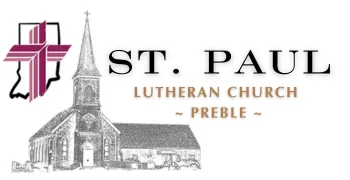
The Lord Jesus Preaches in Nazareth A Meditation on the Word of God | Luke 4:16-30

The Lord Jesus Preaches in Nazareth
A Meditation on the Word of God | Luke 4:16-30
Our Lord’s ministry was a ministry of teaching. Like all the prophets before him, Jesus was a teacher of the Word of God. At the heart of our Lord’s teaching was the message of the Gospel: the proclamation of the forgiveness of sins. Jesus came to announce the forgiveness that is available to all men through his saving blood. The forgiveness that our Lord preached was a full and free forgiveness: a forgiveness that was not founded upon human works and merit, but upon his death on the cross, and his resurrection from the dead. The crowds came to Jesus because they were finding in him a message they were not hearing from the teachers of the law: a message of grace. Jesus preached a salvation that came through God’s mercy and love and not through human doing. Many heard Jesus and believed in him. And through faith, this forgiveness was theirs, along with all the treasures of life and salvation.
Now you might think that such a preacher like Jesus with such a Gospel-filled message would be well-received. You might expect that the people of his hometown would have welcomed him with open arms. Jesus is back in Nazareth again, fresh from his Baptism, a hometown hero. He’s already done miracles in Capernaum, the next town over. People are all talking about him. And now he is back in the synagogue on the Sabbath, in Nazareth, preaching his first sermon. Again, you might expect the Nazarenes would have received Jesus with open arms.
But that’s not what happens. He’s sees them talking amongst themselves. He knows they are ready to throw proverbs in his face: “Physician heal yourself!” As if they said, “You know all these tricks you’ve been pulling in other towns? Why don’t you do one here, to prove to us, you are who you say you are. The Messiah? Unlikely!” As if Jesus is a dancing monkey.
That’s not faith. That’s rejection. Jesus says, “I am not going to do a miracle here. You know why? Because you don’t believe in me. But here is what I am going to do. Remember Elijah, Old Testament? That prophet Israel rejected? Remember how God sent him to that widow in the town called Zarephath to save her from the famine? Remember how she wasn’t a Jew, but a Gentile? I am going to do that. Remember Elisha? Also a prophet? Also rejected by Israel? Remember how God gave him to save that enemy commander, Naaman, by having him wash in the Jordan River, like Baptism, to cleanse him of his leprosy? That’s what I will do too.”
In other words, Jesus says, “I am going to preach the Gospel to your enemies. Because the salvation that I have come to bring is for the whole world: not only the Jew, but also the Greek.” So often in our Lord’s ministry, we see this irony: that the very people Jesus came to—who shared his blood, his family ties, and genealogy—God’s own Israel, turned their backs to him in unbelief, while so many who were far off away God—Gentiles—would hear his message of salvation, and believe in him. And that is why people of Nazareth tried to throw him off a cliff. Because Jesus did not meet their expectations. Jesus came, and upended their preconceived notions they had about God, and the Messiah—what he would be like and do when he came—Jesus completely turned their expectations upside down.


